HOME | ABOUT US | MEDIA KIT | CONTACT US | INQUIRE
HOME | ABOUT US | MEDIA KIT | CONTACT US | INQUIRE
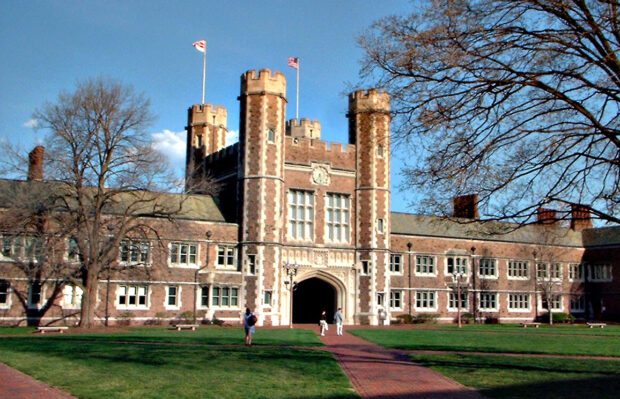
PUBLISHED FEBRUARY 2025
The building blocks of a regional work force start coming together in early childhood education, take shape in K-12 schools and become hardened and sized for success on college campuses. All along the way are education professionals who have devoted lives and careers to turning out the best product possible. You’ll see the qualities that define that commitment in this year’s Icons of Education, hailing from elementary school instruction up through graduate school at public and private universities in Missouri and Kansas. What makes the regional work force here an asset for employers? Read on.
 KARLA ESLINGER, Missouri DESE
KARLA ESLINGER, Missouri DESE
If anyone in Missouri knows the multiple challenges confronting K-12 students in the state—whether they’re urban or rural, poor or empowered—it’s Karla Eslinger. A Kansas City-area native, she lived … well, almost everywhere in the region as her single mother was moving from place to place and raising three, then four girls after relocating to the Ozarks. “As you can imagine, we were not in the same house very often,” Eslinger recalls. As she reached high school, they headed for the relative stability of Ozark County and the town of Gainesville, pop. 707. After changing schools so often, she arrived at a place where “It was small enough, individually, they knew my name, my family, and I’m pretty sure our dog’s name,” Eslinger says. “I had more accountability there because they watched what I was doing.” She would go on to wield that accountability and a passion for education in a career that took her from classroom instruction to district leadership, from the state House and Senate into the private sector, and since last year, as Missouri’s Commissioner of Education. There, her own K-12 history comes into focus. “I had the opportunity to really and truly live some of the most challenging circumstances that our kids have to go through,” she says. She confesses that the path to education wasn’t entirely grounded in a passion for it. Not at first. While it aligned her workday with her children’s hours, she says, as motivating factors go, “that sounds terrible,” she confesses. “But I can tell you when I started teaching, I saw that I had the opportunity to change a life and create generational change in entire families—I saw what an educator could do, creating opportunities that students couldn’t have without a solid education and foundation for success.” Despite decades of real-world experience and more time on the policy side, she wasn’t sure what to think when the commissioner’s role came open. “I took the time to draw that line in the middle of the paper, list the pros/con of what I bring to the table, and in the end, thought I could probably make a difference.” Making that difference is the final coda on more than four decades of service, but wherever she’s been, the goal, she says, “was pretty simple. No matter what cards you are dealt in life, a small rural or huge urban school, a student or parent leader in a building, or a teacher, it’s what you do as an individual that truly matters. People have all kinds of reasons to fail, but they all have the opportunity to succeed. If I’ve been able to do anything, I hope it’s been being real about the challenges, addressing them head-on, and giving everyone that opportunity for success.”
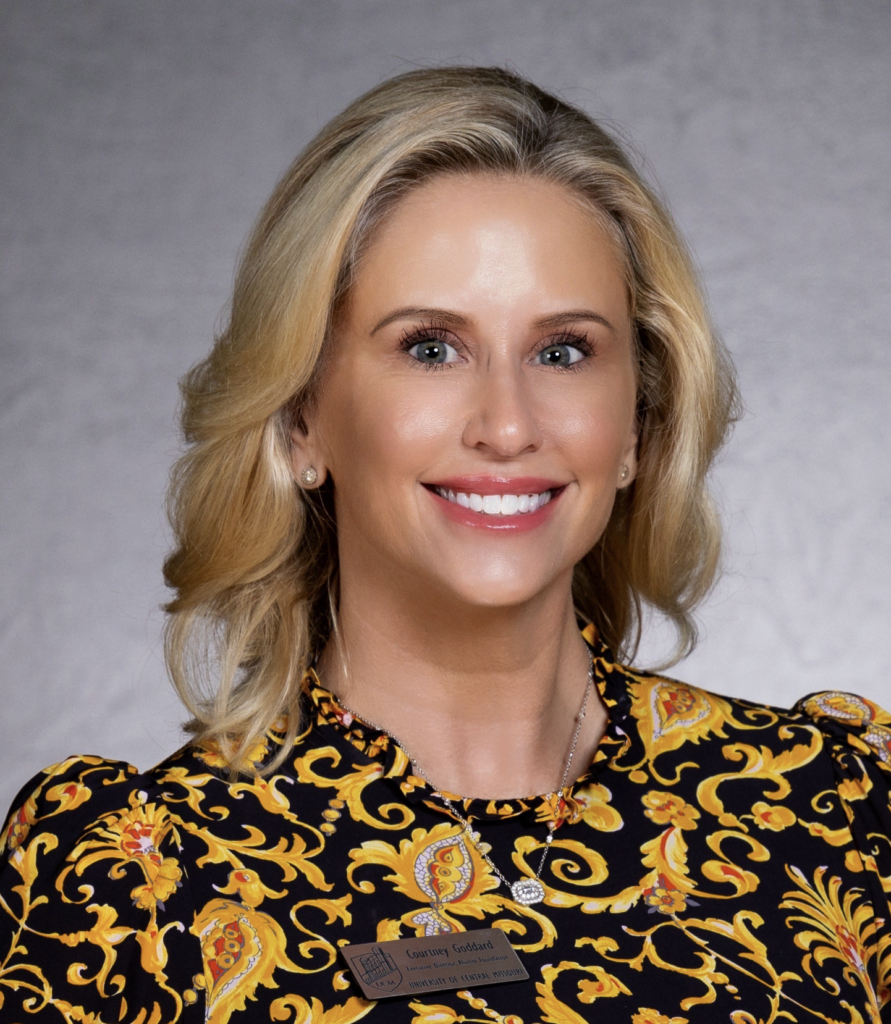 COURTNEY GODDARD, University of Central Missouri
COURTNEY GODDARD, University of Central Missouri
This was the epiphany for young Courtney Goddard, who learned criminal defense law from the legendary J.R. Hobbs, then went to the other side of the courtroom as a prosecutor: “Those experiences turned me from pursuing criminal law to pursuing educational law because I realized I wanted to part of the intervention process long before the criminal-justice process was necessary,” Goddard says. And so she finds herself today as director of development for the University of Central Missouri, a role she took after serving as general counsel at Park University. Education came at that fork in the road; the road itself started before law school. “I cannot remember a time in my life that I did not want and plan to be an attorney,” says this Springfield native. Years of nudging from a lawyer who was a family friend, combined with time she spent on the Missouri State University campus, tweaked interest in both spheres. She originally wanted to practice criminal law, so she secured a degree in that field from Florida State University because “whether as a prosecutor or a criminal defense lawyer,” Goddard says, “the study of victimology, as well as the criminal mind was fascinating to me.” Her time in criminal law eventually brought her to a St. Louis private practice, where the focus shifted toward clients in higher education, including Stephens College and Washington University. “I absolutely loved practicing law in the area of higher education and have never looked back,” Goddard says. In 2007, she became a mother and started at Park University, fulfilling a goal of being part of an organization’s leadership. Then in 2018 UCM came calling. “They knew that my ultimate career goal was to lead a university as a president,” she says, “so, I am now in my seventh year leading the alumni foundation at UCM. It was the best decision I ever made, from a professional perspective.” Her resume now includes leadership experience in both the private and public realms. “There is an illusion in this country that institutions like UCM, which receive state funding, are funded primarily by those states and therefore are not in real need of private funding,” she says. “This is, of course, completely false.” State funding in Missouri, she says, isn’t even close to the funding public universities need to operate. “At the same time, these public universities keep tuition costs as low as possible to provide access to students from every economic background. So, it is more difficult to raise private dollars at public universities, when the reality is they need those private dollars desperately and more than ever in today’s society.” Working in higher education is not easy, she says, but it is absolutely work to be proud of. “I want to provide transformational opportunities to those who are not born with them,” Goddard says. “That is the win. That is the difference I am trying to make.”
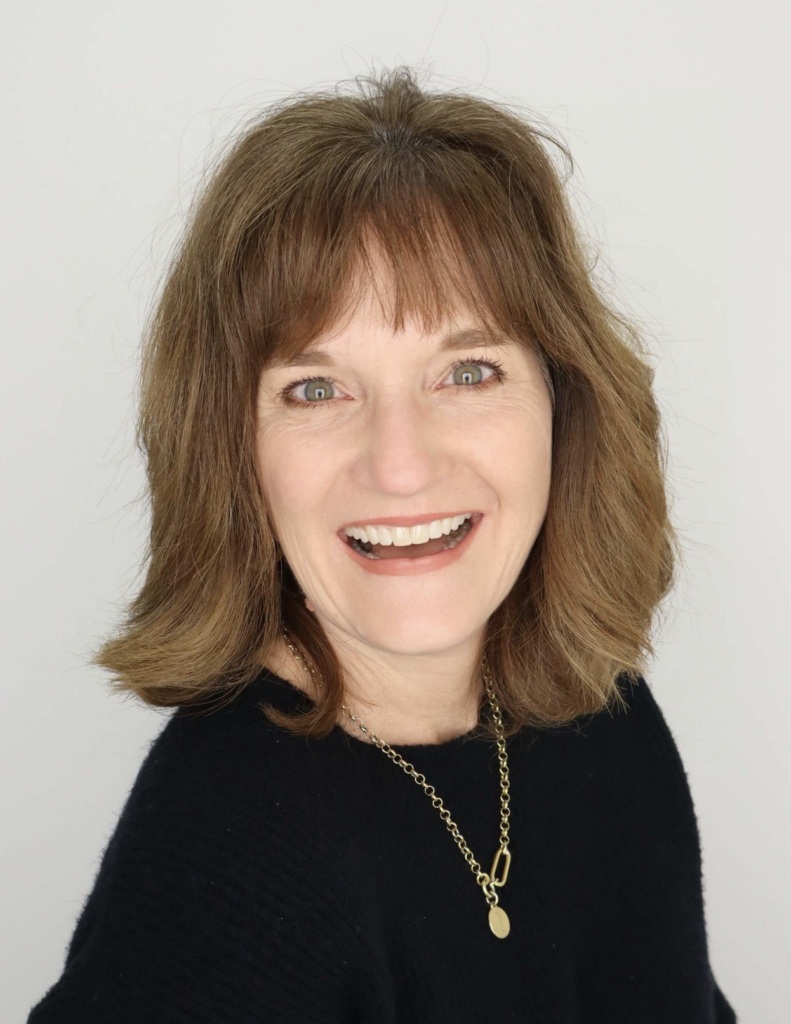 PAIGE ILLUM, Avila University
PAIGE ILLUM, Avila University
Society’s hopes for an educated citizenry present a two-fold challenge for Paige Illum. She’s Avila’s associate vice president for academic affairs and student success. That’s Challenge No. 1: Keeping them on track through graduation. She’s also a professor of communication, running headlong into Challenge No. 2: Ensuring that those who do graduate are capable of effectively communicating in the life that awaits them—all of it, not just the career piece. To win at the first level, she says, “you need to look at data: national, regional and institutional. You need to learn about your students and understand why they stay, why they leave and what goes on while they are there. Data helps to tell a story and it’s important to understand this story.” It’s also imperative to get to know students and understand what they need to be successful, she says, then, provide them with the resources to meet those needs. That invokes a litany of causes that lead to drop-outs, from coursework that should be more challenging, to necessities like housing, transportation, a job—even food on the table. “At one point or another, life is going to happen and they need to feel like they have someone at the university to help them navigate the challenge,” Illum says. “Overall, I think the biggest challenges students face today are cost of education/student debt, college preparedness and mental health.” Her second challenge is a big one in an age where employers routinely lament the inability of young workers to effectively communicate, especially by writing. “I don’t think students have lost their ability to effectively communicate; I think the way they communicate has changed and broadened,” Illum says. “Everything from social media to AI has changed how we communicate. I don’t think we need to reclaim, I think we need to adjust. Nevertheless, I do think educators need to keep the expectations of communication high. We need to expect thought-provoking, interesting, grammatically correct communication that comes from their own creative minds.” Illum is a product of Shawnee Mission West, K-State and KU, topping out with her doctorate in foundations of education and communications studies. Her career has taken her through both private and public institutions, and while she sees some basic differences, “It’s like anything else in life: Students can create an amazing experience for themselves as long they feel safe and supported emotionally, intellectually and physically,” Illum says. So her mission is defined. “I pray my legacy is that I have made a difference in the lives of students,” she says. “In the life of a student, sometimes it is just about getting from this day to the next. I hope I helped students get to the next day, then the next day and then the next. Eventually, a student graduates and their life will have changed for the better.”
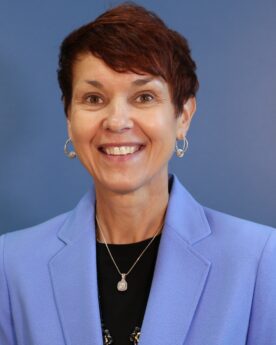 TONYA MERRIGAN, Blue Valley School District
TONYA MERRIGAN, Blue Valley School District
Plenty of influences in Tonya Merrigan’s life led her to become superintendent of the Blue Valley school district. Start with a grandmother who, in addition to raising 13 kids of her own, taught others in a one-room schoolhouse in South Dakota. As a second-grader, she became hooked on the instructional high of helping kindergarten students with their tasks. As a student, her appetite for learning was nearly boundless: Three degrees from the University of South Dakota, and a doctorate in educational leadership from Saint Louis University. All of those experiences were both instructional and inspirational. She knew she wanted to return the favor. “College,” she says, “helped me define what I enjoyed, which was being in schools.” And she was immediately at home, then, when she walked into Blue Valley High School 26 years ago as a counselor, the first step on her path to leadership. “We have always had high academic expectations of students, but we also take care of our students and staff,” she says. “Administration was a way for me to work with more students and staff by building relationships across the district.” She succeeded Tom Trigg in 2019, and has carried on the legacy of her district being, hands-down, the No. 1 performing district in terms of college preparedness, measured by ACT scores. The secret sauce there? “We work hard to ensure that our schools are all rowing in the same direction,” Merrigan says. “Our board of education approves district goals each year that align with our strategic plan. These goals always include academic benchmarks that we are all working toward which requires that we have a well-defined and articulated curriculum/resources that all schools use. Each school sets goals based on district goals and personalizes it for their students.” That coordinated effort, she’s convinced, gives students across district the same experience in each of its 22 elementary, nine middle and high schools. Replicating the Blue Valley model won’t be easy; students there, she says, “are so lucky because they have the “Trifecta” of support. That includes amazing staff who work with supportive parents and a community at large who supports schools whenever we ask. Policy and funding are very important for all our public schools because we must be able to provide support for our students and of course take care of our staff. However, equally as important is the community working together.” She’s hopeful that the team she has assembled there will be her legacy of leadership. “Without a doubt the No. 1 thing is the amazing staff we have hired,” she says. “Teachers and other support staff in the classrooms are crucial to student success and we have worked hard to hire the best. … Every time I walk into a classroom I am reminded of the importance of our staff and feel like our work is making a difference for the over 22,000 students who walk through our doors every single day.”
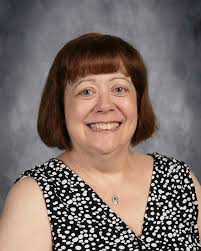 MELISSA REYNOLDS, Bishop Miege High School
MELISSA REYNOLDS, Bishop Miege High School
This one started with payback. Or a plan for it. Melissa Reynolds was in eighth grade when the debate teacher back in Springfield began hectoring her about joining the team. Self-described as “mousey and shy,” she had no interest in public speaking and held firm. By her sophomore year, she decided to show him why he was wrong. That was her moment of personal discovery. “I began learning some skills that allowed me to have more confidence and feel better about myself as a public speaker,” says Reynolds. “I stuck with it because I saw how much it had changed me.” When she says she stuck with it, she isn’t exaggerating: She’s spent the last 38 years at Bishop Miege High School, where, under her direction, a formidable debate team has racked up a trophy case full of awards and honors. She made it a career, she says, because “I knew there were a lot of other people out there like me that didn’t have that confidence and didn’t think they could be good public speakers, and I wanted to enlighten them.” Last spring, the National Speech and Debate Association bestowed on her a 7th Diamond Award, one of its highest honors. “My management style is to set a high standard for students in terms of work ethic and quality of work they do,” she says. “I’m also really big on ethical behavior and helping each other succeed. I’ve tried to run teams where it’s cooperative, and everybody is as important as everybody, all working for the benefit of the group.” More than just a box to be ticked off on course requirements for graduation, the skills she’s imparting are filling a huge void increasingly cited by workplace hiring managers and business owners: Today’s youth, for reasons ranging from COVID lockdowns and remote learning to device-driven text messaging and media consumption in microbursts, too often don’t have the ability to interact socially in real life, Reynolds says. “Between social media and texting, they don’t talk, they don’t orally speak with others on as regular a basis,” she says. While Kansas this past year implemented a communications requirement for graduating seniors, “I don’t think things change much without more deliberate efforts on the part of educators, or by employers having training set up in their companies.” Seeing someone who comes to her “mousey and shy” turn into a high-performance orator is validation of her career’s labors. “I had a particular student a couple of years ago with a bad case of speech anxiety—she just couldn’t do it. But she finally took my class and, halfway through, was loving it so much that she wanted to take forensics the next semester. That kind of transformation is gold,” Reynolds says. “Those will be things I’ll always cherish more than the trophies—what the kids themselves have accomplished.”
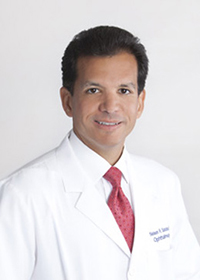 NELSON SABATES, UMKC School of Medicine
NELSON SABATES, UMKC School of Medicine
Sure, it was entirely predictable that Nelson Sabates would follow his father’s career lead into ophthalmology. But let’s not discount The Mom Factor. “Mom was just as much an influence as Dad,” says Sabates, who chairs the department of ophthalmology for the UMKC School of Medicine. “They always stressed education, because both came here from Cuba and lost everything doing it. The only thing they had is what they learned, and that was something they planted into my head, and my brother’s and sister’s.” It was not a wasted effort on young Nelson. Not only would he go on to build a network with some of the region’s most prominent eye-treatment centers, he would do double duty on the faculty at UMKC, instructing legions of new specialists in that practice. It would be natural to recognize him for his role in health care—and in fact, we did, naming him a Top Doctor in 2009—but Sabates has also earned his place in health education, as well, and his commitment to UMKC is personal. “I’ve always been a huge proponent of UMKC and the School of Medicine; the education I received there was second to none,” he says. “I always remember going to my internship, with probably 15 others in that group, and I was far and away the most prepared, and UMKC is the reason why,” he says. That training—including the mentorship of a physician who at age 102 is one of Sabates’ patients—secured his future, he says. “With his training, and the role models of my mom and dad, I couldn’t lose,” he says. That’s the source of his inspiration to pass it along, “teaching other people what I had learned and continue to learn.” And his work there is also in service of elevating UMKC’s reputation. “A lot of people still don’t realize what a great university it is,” Sabates says. We have phenomenal undergraduate programs, graduate schools in law, business, the conservatory, the Health Sciences district. And with schools of medicine, pharmacy, dentistry and nursing, we’re one of only 25 universities in the country that can say that.” The fun thing about teaching, he says after 30 years of it, “is that it always keep you on your toes. … You can read a book or the health-care literature, but experience is the best teacher. So I try to pass on my experiences, clinically, academically, business-wise, to all the residents and students I come in contact with.” That last piece, he says, is emerging as a big one. “A year ago, I started a practice-management lecture series, teaching about the business side of it. I’m able to tell them all the trials and tribulations I went through in business, the mistakes I made, because I’m one of them. And they learn from that.”
WILLIAM TSUTSUI, Ottawa University
It’s not a big universe, but we’re going to go out on a limb here to suggest that Ottawa University has at its helm America’s academia’s singular authority on the cultural phenomenon that is … Godzilla. “I have loved Godzilla my whole life and have been fortunate to have a career that has allowed me to write books about the King of the Monsters and introduce Japanese movie monsters to generations of students,” says OU’s president and CEO. “You can learn so much about Japan and its history from the Godzilla films. But you can also learn a lot about yourself as well: as a Japanese-American, I have always felt a particular kinship to Godzilla, even though I am neither reptilian nor radioactive.” The Big Lizard’s cultural impact, both here and in the Far East, has been a sort of entrée for Tsutsui to open young minds to far more realistic aspects of East Asian studies, which in turn opened the opportunities for educational leadership. A former professor at the University of Kansas, he went on to administrative roles at Southern Methodist University, then became president of Hendrix College in Arkansas, where he also taught history. In 2021, he took the reins at Ottawa, which serves about 2,000 students at its Kansas and Arizona campuses. The son of two college professors, Tsutsui’s youth was divided between New York’s Bronx and central Texas. That, he says, “helped me be adaptable and open-minded in my life and career. It also made me very opinionated about pizza and BBQ!” But it was probably inevitable, he says, that he’d go into the family business. “I grew up hearing about faculty meetings, curricula, and office hours around the kitchen table,” he says, and inspirational teachers set him on the track. The early seeds of leadership were planted at KU, creating new programs, raising funds, and establishing partnerships, but when it came to administrative roles, “I just sort of fell into it,” he says. “I had never really thought about a dean’s position, but an academic headhunter gave me a call one day, and I soon found myself with a fancy title and a big office at SMU. The same thing happened when I became president at Hendrix College a few years later. I have always enjoyed working on challenging problems with smart, committed people, and that really is what academic administration is all about.” At OU, his team provides instruction in adult, graduate, and professional programs offered online and thro-ugh locations in Kansas City, Milwaukee, and Phoenix. “OU is more entrepreneurial, agile, and adaptable than any other university I have ever encountered: here, everything seems possible, and our people have a ‘can-do’ attitude.”